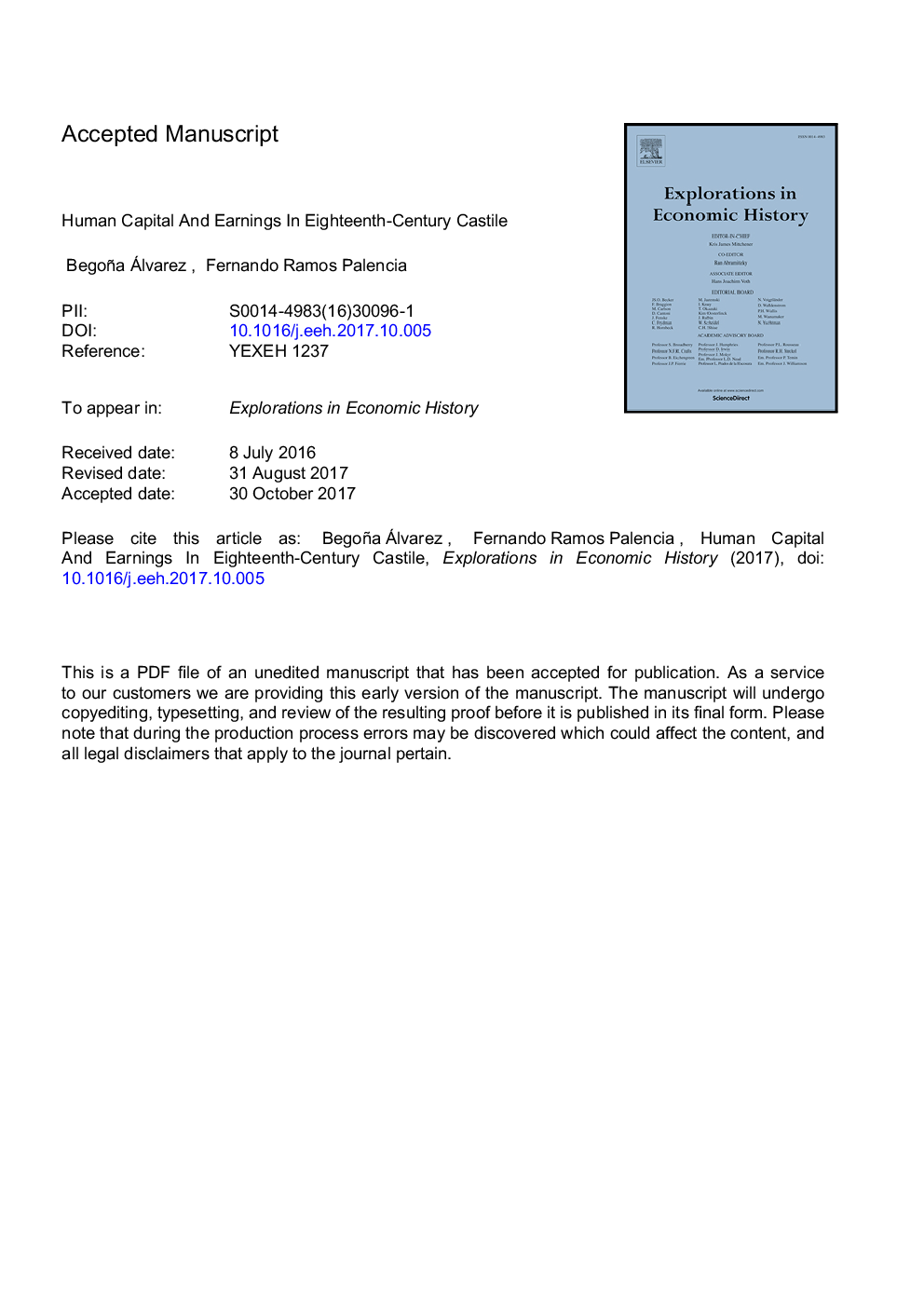| کد مقاله | کد نشریه | سال انتشار | مقاله انگلیسی | نسخه تمام متن |
|---|---|---|---|---|
| 7351923 | 1476960 | 2018 | 59 صفحه PDF | دانلود رایگان |
عنوان انگلیسی مقاله ISI
Human capital and earnings in eighteenth-century Castile
ترجمه فارسی عنوان
سرمایه انسانی و درآمد در کاستیا در قرن هجدهم
دانلود مقاله + سفارش ترجمه
دانلود مقاله ISI انگلیسی
رایگان برای ایرانیان
کلمات کلیدی
موضوعات مرتبط
علوم انسانی و اجتماعی
علوم انسانی و هنر
تاریخ
چکیده انگلیسی
Using the Ensenada Cadastre, a unique database on Castilian households circa 1750, this paper provides new evidence on the relationship between human capital and male labor earnings in eighteenth-century Spain. Human capital is proxied by individual indicators of basic skills (literacy and numeracy) and of occupational skills. We employ a Mincerian regression approach and find a positive and statistically significant association between skills and average earnings. Although we cannot reliably assess causality in the observed relationship, these findings are robust to conditioning on household composition, job characteristics, and place of residence. Nonetheless, further testing indicates that the earnings gradient associated with literacy is driven mainly by unobservable variables (e.g., ability, family background) that explain both the worker's acquisition of this skill and his earnings. The estimated associations are stronger for urban than for rural workers and are highly heterogeneous across activity sectors. Our analysis reveals that workers with higher skills were not only better remunerated in their main occupation but also more likely to diversify their earnings through “by-employment”. Finally, quantile regression analysis indicates that earnings disparities-between workers with different skills-were much smaller at the lower than the upper end of the earnings distribution. This evidence suggests that, in pre-industrial Castile, human capital may have contributed to inequality of earnings.
ناشر
Database: Elsevier - ScienceDirect (ساینس دایرکت)
Journal: Explorations in Economic History - Volume 67, January 2018, Pages 105-133
Journal: Explorations in Economic History - Volume 67, January 2018, Pages 105-133
نویسندگان
Begoña Álvarez, Fernando Ramos Palencia,
